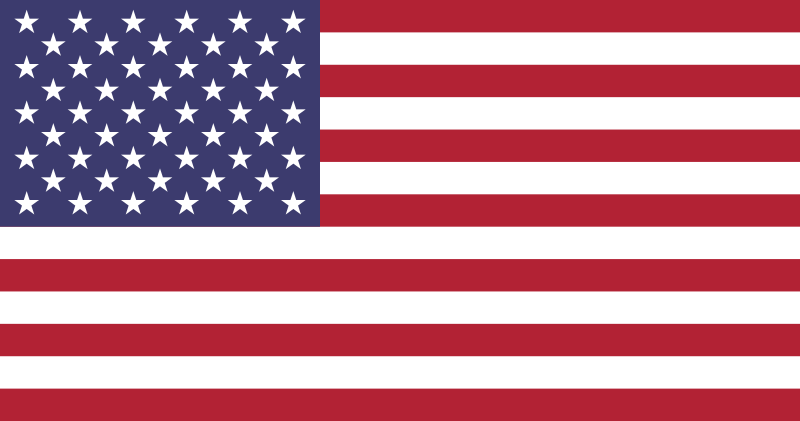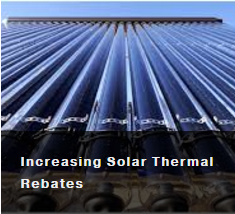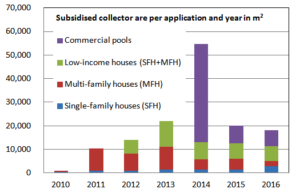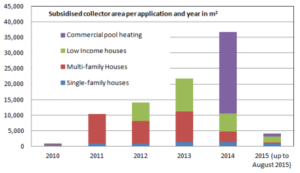Hawaii: Is the Strongest Solar Thermal Market in the US in Trouble?
January 20, 2011
After being the strongest U.S. market for solar thermal for many years, Hawaii currently has to cope with a falling demand for solar thermal installations. According to the U.S. Solar Market Insight report for the third quarter of US Solar Energy Industries Association (SEIA) and GMT Research, Hawaii has dropped behind California on second position. Solarthermalworld.org asked Mark Duda, President of the Hawaiian Solar Energy Association, about the background of this development.
Solarthermalworld.org: The solar thermal market in Hawaii has fallen off steeply in 2010, that’s what claims the Q3 Solar Market Insight report. The report holds the removal of tax credits and rebates responsible for this development. Do you agree with this assertion?
Mark Duda: Things are off but I wouldn’t say “steeply.” There is a data issue going on that is confounding things mightily. As we’ve discussed, 2010 is the first year that solar thermal systems are more or less required on new homes (see http://www.solarthermalworld.org/node/1327). Because they are required they do not qualify for the rebate, and the rebate programme is the primary way the data are tracked so we’ve lost track of a large chunk of the market.
Solarthermalworld.org: Is that the only reason for the decrease?
Mark Duda: No, new residential construction is actually down substantially as well, due to overall housing market and macroeconomic conditions. So even if the data were captured the same way, they would still show that the market is off. Similarly, we’ve had a large number of ‘military housing’ systems built with solar thermal for the last 5 to 6 years. These homes also qualified for the rebate until late in 2009 so, they were in last year’s data but not this year’s, plus since the developers knew about the impending end of the rebate programme they brought as much of 2010 forward in 2009 to get the subsidy, making 2009 artificially high. In addition, 2010 was the final year of the end of the federal tax credit on heat pumps and these were heavily marketed, which also ate into the thermal installs.
Solarthermalworld.org: Since January 2011 the First Hawaiian Bank offers 5-year loans at 0-percent financing for clients that want to purchase a solar water heater. Is the 0% financing programme in your opinion a good replacement for the old rebate programmes?
Mark Duda: I think you are referring to the new loan programme that First Hawaiian is working on with Hawaii Energy. Hawaii Energy is the Public Benefits Fee contractor that administers the energy efficiency funds raised by a ratepayer surcharge on three of our State’s four utilities. The new loan programme deploys federal funds to buy down the interest rate on loans for residential solar thermal systems. Hawaii Energy is also working with several credit unions but I think that First Hawaiian has been the most proactive about marketing the programme. But, to answer your question, I do think it’s a great programme and adds to the options that enable homeowners to purchase solar thermal systems.
Solarthermalworld.org: The First Hawaiian Bank proclaims the goal to support the installation of 4,100 solar-water heating systems in 2011. Do you think these numbers are realistic?
Mark Duda: I think they are realistic. As you mentioned, residential solar water heating is not new in Hawaii. When I look at why owners of single family detached units do not have solar, it is often because a combination of the desire not to pay out of pocket and the need for targeted financing options. The new loan program addresses this issue and also adds some marketing muscle as well.
Solarthermalworld.org: What is your estimation of the market volume in Hawaii in 2010?
Mark Duda: We will have full year data as best we can get it for 2010 in another couple of weeks and we can definitely send it along and do our best to explain the trends at that time.
More information:
Hawaiian Solar Energy Association: http://www.hsea.org
GTM Research: http://www.gtmresearch.com/solarinsight


